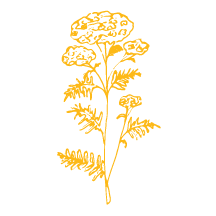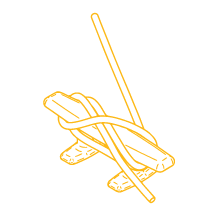
Go here for Keith on Addiction & Community (Part I), a video about Keith’s years of addiction before he finally found recovery.
After nearly 30 years of living with active addiction which was “like being in the pits of hell,” Keith Arvanitis finally found the community he needed to achieve recovery, and is devoting his life to help others do the same.
Keith, certified as both a peer support specialist and recovery coach, is the Program Coordinator of Boothbay Harbor Peer & Wellness Center. In 2015, upon his release from prison, he found a group of peers in recovery who supported him as he sought wellness. He began working toward a Bachelor’s degree in Substance Abuse/Addiction Counseling from the University of Maine, found his passion in helping others, and landed his dream job.
“Peer support specialists are people who have experienced addiction themselves and have been trained to support others with their own substance misuse issues,” he says. “I know how important this was for me in my own recovery.”
Keith’s position at the Center has allowed him to do just that.
Founded in late 2018 as an outreach arm of Amistad—a Portland-based organization serving those with mental illness and addiction (more accurately termed “substance use disorder,” or SUD)—the Center offers support and resources for those affected by substance misuse in the Boothbay Region. Since Keith began his job in spring 2019, he has worked on making it a safe space for those seeking help, from the person in active addiction to the family member worried about a loved one’s behaviors.
“There’s a thing about safety,” he observes. “People need a safe place to go to where they know they are not going to be judged—where they can be with someone who has experienced the same thing they have. It’s huge. When I didn’t have that safe place to go to connect with others, that disconnection really affected me. We provide that kind of safety and community with the Center.”
Especially with the onset of COVID-19, filling this need has not been easy. Keith had been Program Coordinator for less than a year when the pandemic forced the Center to close its on-site facility.
“Even before COVID, I would have liked to have seen more engagement,” he says. “As a new organization in town, it takes time to establish your presence and make clear what it is you offer the community.”
The Center offers a great deal, and not just to those with substance use disorder—affected families are part of the growing clientele, too. “We were supporting not just peers but family members walking in the doors, which was huge because when a family member is witnessing a loved one caught in the cycle of addiction, there are a lot of unknowns. It’s so important for us to support a family member through that.”
The progress they were making to establish themselves, overcome stigma and attract those who needed their programs stopped short when the state went into lockdown.
While Keith and other Center staff are constantly available by phone and online, and they now hold weekly outdoor support meetings, “business” is not the same as it was before the pandemic; he worries about the impact on those struggling with SUD.
“When someone is in the moment of desperate need, to be able to walk in a door to physically talk to someone is a lot different than making a call,” notes Keith. “With the Center being closed, we’re missing that sense of fellowship and human warmth that comes with community.”
As eager as he is to re-open the facility, Keith knows now is not the time. “We have to think of the coronavirus and the risk people are put at. It’s just not the right time.”
What makes that realization all the more painful for Keith is his seeing firsthand the impact the closure is having on people trying to find recovery. He offers an example:
“One individual we’ve been supporting from the region is caught in the middle of crystal meth use. They had been on a better path before everything shut down—their usage was down and they had support available – but now over the past three months this person’s usage has skyrocketed. It’s heartbreaking.”
Understanding addiction as he does, Keith does not blame those struggling for their behaviors; rather, he brings unyielding compassion for their plight.
“Just because people have trouble with substances does not make them less than human. I always remember: that person is someone’s son, someone’s brother or father or mother, and what we witness in how they act is a byproduct of the addiction itself,” he says.
“That person is still there—that person is still a loving, caring human being. Nobody wakes up and says ‘I want to have a drug addiction.’ Each individual situation is unique, and I never give up on people.”
In a region that already prides itself on its community spirit, Keith summarizes in two words his hope for those suffering in Boothbay: “More community.” From his own experience, he knows those living in isolation, caught up in harmful addiction behaviors, are not always treated with kindness.
“This individual was on the side of the road with a sign saying he was homeless. I pulled over and told him there are people in the community who care about him. To see the number of people driving by or walking around him was devastating to me. To let him know there are people in the community who care for him and love him, and that’s the biggest thing a community can do—those few kind words of acknowledging him without worrying about the external things—the greasy hair; the dirty clothes—it matters so much to that person to be acknowledged as a human.”
Keith offers a simple way forward for all of us:
“Just love,” he says. “I can’t put it any other way. I understand people who haven’t been through it are scared or put off by what they see and want to put boundaries up, but just love.”
Keith judges neither those in SUD’s grip nor those who have difficulty seeing the person beneath the disorder: his own past has taught him much, and because of it he has found an abiding empathy for others and a deep faith in the restorative powers of community.
Perhaps that is why he does not regret his life path, difficult as it has been.
“This may sound odd, but I’m happy for the experiences I had,” he remarks. “We only know what we know and we only do the best we can. We have to learn from those experiences, and that’s all we can do.”
This is true for all of us—we each have our own experiences to learn from, and we are fortunate to have Keith and the experience he so generously shares to guide us, as well.
For updates, follow the Center’s Facebook page, where staff posts information on upcoming activities.




